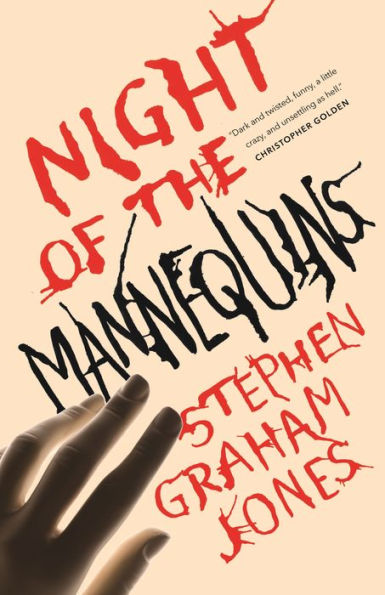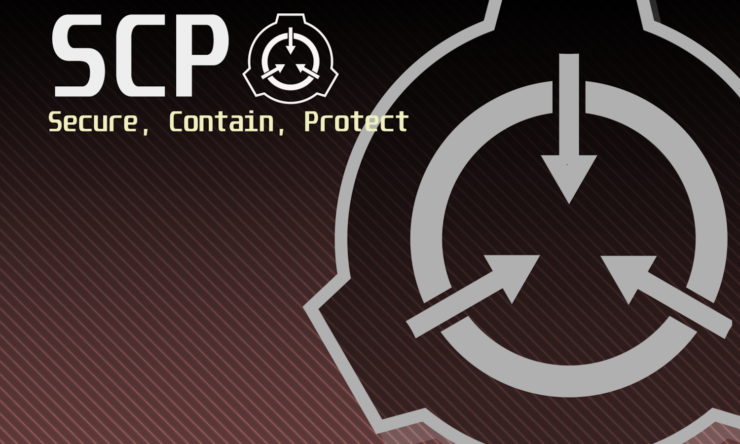The universe of speculative fiction is an ever-expanding monstrosity, often merging with horror, science fiction, fantasy, and similar realms of weirdness. These genres can cover everything from full metal gore and peculiar truths to hidden monsters and secret conspiracies.
But whether they’re dry and deadpan or gloriously maximalist, many of these stories are often born from small inspirations. Some of the most unnerving narratives are anchored in the familiar—ideas and objects that we’re comfortable with in day-to-day life. Some of the most unsettling books, films, and games share roots with one of the most fascinating fictional worlds on the internet—one that uses the mundane form of a wikipedia community to draw readers into the fold.
The supernatural work of Marshall, Carter and Dark—a cabal of black market auctioneers—is a fitting mirror for our current reality of capitalism and resource exploitation, where the rich and powerful reign supreme. MC&D controls ungodly amounts of money because of its iron grip on the political elite, who remain captivated by the group’s specialty: buying and selling strange phenomena. They deal in vinyl records that place listeners into a telepathic coma, a collection of walking sticks with thaumatological properties, SpongeBob Squarepants wristwatches that alter limbs and bones, and a group of people who all claim to be the former Prime Minister of Australia, Harold Holt, who vanished in 1967.
Of course, Marshall, Carter and Dark isn’t real. It’s just one canonic element of the SCP Foundation—a collaborative online fiction project whose name stands for Secure, Contain, Protect. Taking a page from the Victorian appetite to collect and classify, the Foundation’s mission is to secure, contain, and protect special (and sometimes dangerous) objects, as well as to document events and persons of interest.
The result is a vast repository of seemingly banal items, each exhibiting what the Foundation calls “anomalous” behavior. Each SCP object or “skip” bears a number and classification. SCP-145, for instance, is a cordless phone, described in the sort of clinically precise, detached language one would normally find in a research report. Each object also has a special containment procedure developed through rigorous testing by SCP staff.
SCP’s earliest known beginnings were on 4chan’s paranormal /x/ message board in the form of SCP-173, a statue that came to life when it wasn’t being observed. It was posted on June 22, 2007, around the same time that Doctor Who aired an episode about an almost identical concept, and spurred some chicken-and-egg discussion about plagiarism. And while SCP’s origins lie in creepypasta—shortform online horror writing that has its own storied place in internet culture—the rise of the Foundation marked the beginning of a new, complicated relationship between the SCP and mainstream pop culture, touching on issues of authorship and inspiration.
Buy the Book


Night of the Mannequins
There is no simple way “in” for new readers who stumble across SCP by accident—the only way to get into SCP is to read and keep reading. The wiki’s cold, scientific style lends itself well to speculative fiction and horror readers who are already willing to suspend disbelief. Coupled with the replicative memetic nature of creepypasta, the wikipedia format has become a defining method of how we treat knowledge as a shared resource. Should writers cherry-pick ideas from SCP? It’s a controversial, polarizing issue, but one that can’t be definitively resolved.
Take, for instance, the novel Horrorstör by Grady Hendrix, which shares a similar basic premise to SCP-3008—both involve a tainted, supernatural version of IKEA. Many urban dwellers have probably been to an IKEA, and probably made jokes about getting lost or encountering corporate Morlocks in the notoriously labyrinthine megastore. But the idea that IKEA might be a living nightmare rather than a place for cheap sheets and meatballs isn’t unique to SCP, even though SCP-3008’s fame has seeped out into the normal world—it’s been recreated in Roblox, a mobile game, and a standalone PC game. The kernel of a weird, bad IKEA has been floating in our collective consciousness for years.
Consider Bird Box, Josh Malerman’s 2014 novel about mysterious creatures that induced madness on sight. The book conjured elements of SCP-370 (a “contagious memetic infection”), SCP-053, (a child who could induce paranoia and homicidal behavior), and SCP-096 (an entity which can’t be viewed or recorded). David Wong’s John Dies at the End series has long been a topic of SCP discussion because of its bleak, deadpan absurdism and supernatural incidents. Beyond film and books, SCP was also a big influence on the 2019 video game Control, which revolves around a mysterious federal agency that functions much like the Foundation, and text-based games like Neurocracy and Unit 322 (Ambiguation); Paste’s Holly Green even made a suggested reading list of popular SCPs for Control fans.
Even some of the most beloved SCPs are a nod to the site’s wry sense of self-awareness, like SCP-055, a “self-keeping secret” that cannot be remembered, or SCP-1756, a DVD player that only plays corresponding episodes of Siskel and Ebert at the Movies instead of your chosen movie. TV shows like The X-Files and Warehouse-13 (perhaps a nod to SCP-1730, once home of Foundation Site-13) have also spread their own mythologies across pop culture.
Given the heavy intertextual nature of SCP’s content, this is a community that knows and understands the power of reproduction and remixes. SCP uses the Creative Commons Sharealike 3.0 license, which lets anyone take its material as long as it’s attributed. This means that you can pluck stories and art from SCP and use them for profit. Last year, the site’s rich hoard of material spurred a Russian named Andrey Duskin to file a Russian and Eurasian Customs Union trademark for the SCP name and logo to safeguard his own merchandise projects. This is the most drastic known attempt to seize control of the SCP “brand,” which would arguably change the way that the SCP would function.
It’s impossible to overstate how important the concept of ‘remixing’ is to the modern creative landscape, especially in writing, where turns of phrase and boilerplate story tropes are constantly being used, re-used, and re-invented across borders, genres, and languages. Anyone can take SCP story elements and riff off SCP ideas, which means that SCP transcends simple, straightforward fiction to become a new kind of lore—folk tales for a new generation in new medium. It’s too simplistic to call this approach plagiarism or piracy, because it ignores the beauty of reinvention (and, arguably, our entire history of popular culture).
What makes SCP such a formidable entity is how well both its form and function satisfy our love of conspiracy. Even if you view the Foundation as a one-stop shop of memetic ideas or new boogiemen, its story elements come from an existing pool of urban folklore, dystopian thought experiments, and communal imagination, making SCP a priceless repository for the internet’s weirdest and most terrifying ideas; of course, these could easily end up as Hollywood’s weirdest and most profitable ideas, told through different eyes. Still, the community remains a powerful testament to collaborative writing: a holistic, living piece of writing that needs to stay free.
Alexis Ong is a freelance culture journalist with weak ankles who mainly writes about games, tech, and pop culture. Her work has appeared in The Verge, Polygon, Kotaku, Rock Paper Shotgun, VICE, Dazed Digital, and more; soft spots include science fiction, internet archaeology, comics, boxing, and old games. You can find her at her website or on Twitter.










